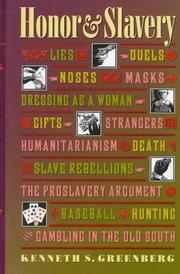| Listing 1 - 9 of 9 |
Sort by
|
Dissertation
Year: 1998 Publisher: Liège : Université de Liège. Faculté de médecine (ULg). Département de clinique et pathologie médicales,
Abstract | Keywords | Export | Availability | Bookmark
 Loading...
Loading...Choose an application
- Reference Manager
- EndNote
- RefWorks (Direct export to RefWorks)
Dissertation
Year: 1998 Publisher: Liège : Université de Liège. Faculté de médecine (ULg). Département de clinique et pathologie médicales,
Abstract | Keywords | Export | Availability | Bookmark
 Loading...
Loading...Choose an application
- Reference Manager
- EndNote
- RefWorks (Direct export to RefWorks)

ISBN: 0880117052 Year: 1998 Publisher: Champaign Human Kinetics
Abstract | Keywords | Export | Availability | Bookmark
 Loading...
Loading...Choose an application
- Reference Manager
- EndNote
- RefWorks (Direct export to RefWorks)
Running for the aged --- bejaarden: lichamelijke opvoeding --- atletiek --- lopen --- Running for older people --- Sports for older people
Book
ISBN: 280412567X 9782804125677 Year: 1998 Volume: *1 Publisher: Paris: De Boeck,
Abstract | Keywords | Export | Availability | Bookmark
 Loading...
Loading...Choose an application
- Reference Manager
- EndNote
- RefWorks (Direct export to RefWorks)
Geneeskunde --- Médecine --- Sport --- Sports --- Running --- Course à pied --- Course à pied
Article
Year: 1998
Abstract | Keywords | Export | Availability | Bookmark
 Loading...
Loading...Choose an application
- Reference Manager
- EndNote
- RefWorks (Direct export to RefWorks)
Several species of animal are routinely housed in small, barren cages with little opportunity for extended or complex locomotion. Various resources could be provided to overcome this limitation, however, these differ in their practicality, cost and presumably in their suitability as perceived by the animal. This study examined the activity of 5 laboratory mice within three resources which provided the opportunity for extended or complex locomotion, namely, a 'locomotion-loop' (a 40 cm torus of plastic tunnel), a complex tunnel environment and a running-wheel. In addition, the perceived importance of these resources was determined by measuring the persistence of their use when the operant cost (switch pressing) of gaining access was increased. When the lowest cost of 1 press/visit was imposed, the mice used the three resources to different extents: the running-wheel was used for the greatest proportion of each 24 h (9.1%), the tunnel system was used for an intermediate amount of time (8.1%) and the loop was used the least (0.3%) (all differences were significant). At the lowest cost the running-wheel was visited 13.7 times each 24 h, the tunnels 14.6 times and the loop only 4.7 times. Over the 15-day duration of the study, the mice reduced the frequency of visits and activity in the loop and tunnel system, but not the running-wheel, i.e. the mice habituated to the loop and tunnels, but not the running-wheel. When the cost of access was increased, the frequency of visits decreased for all three resources. However, activity within visits increased and the duration of visits remained constant for the running-wheel, whereas both decreased for the loop or remained constant for the tunnel system. Therefore, as the costs increased within the range studied here, the mice defended the proportion of 24 h in the running-wheel to a greater extent than time in the tunnel system or the loop. Of the 3 resources, use of the running-wheel was least affected by increasing the cost
Access. --- Activity. --- Animal. --- Behaviour. --- Cage. --- Cost. --- Costs. --- Duration. --- Enrichment. --- Environment. --- Environmental enrichment. --- Frequency. --- Investigation. --- Laboratory mice. --- Laboratory. --- Locomotion. --- Mice. --- Resources. --- Running wheel. --- System. --- Time.
Book
Abstract | Keywords | Export | Availability | Bookmark
 Loading...
Loading...Choose an application
- Reference Manager
- EndNote
- RefWorks (Direct export to RefWorks)
341.355 --- Arms transfers --- -Illegal arms transfers --- Arms smuggling --- Arms trafficking --- Contraband arms traffic --- Gun running --- Gunrunning --- Illegal arms trafficking --- International illicit arms sales --- Arms sales --- Arms traffic --- Foreign military sales --- Military sales --- Munitions --- Sale of military equipment --- International trade --- Arms race --- Defense industries --- Military assistance --- Wapenhandel aan oorlogvoerenden. Wapensmokkel. Handel van neutrale staten met oorlogvoerende staten --- Law and legislation --- 341.355 Wapenhandel aan oorlogvoerenden. Wapensmokkel. Handel van neutrale staten met oorlogvoerende staten --- Illegal arms transfers --- War, Maritime (International law) --- War (International law)
Book
ISBN: 271783673X Year: 1998 Volume: 26 Publisher: Paris : Economica - anthropos,
Abstract | Keywords | Export | Availability | Bookmark
 Loading...
Loading...Choose an application
- Reference Manager
- EndNote
- RefWorks (Direct export to RefWorks)
Blockade --- Blockade running --- Blocus (Economique, militaire, etc.) --- Blokkade --- Guerre navale (Droit international) --- High seas [Jurisdiction over ] --- Hostilities --- Maritime war --- Naval warfare --- Opeisingen (van neutrale schepen en ladingen) --- Requisitions (of neutral vessels and cargoes) --- War [Maritime ] (International law) --- Zee-oorlog (Internationaal recht) --- requisitions (de navires neutres et de cargaisons) --- Rio de la Plata (Argentina and Uruguay) --- Argentina --- History --- 19th century --- France --- Louis Philip, 1830-1848 --- ARGENTINE --- AMERIQUE DU SUD --- FRANCE --- HISTOIRE --- RELATIONS EXTERIEURES --- HISTOIRE MILITAIRE --- 19E SIECLE

ISBN: 0520921283 058505455X 9780520921283 9780585054551 9780520214491 0520214498 0520214498 Year: 1998 Publisher: Berkeley University of California Press
Abstract | Keywords | Export | Availability | Bookmark
 Loading...
Loading...Choose an application
- Reference Manager
- EndNote
- RefWorks (Direct export to RefWorks)
When the San Jose Mercury News ran a controversial series of stories in 1996 on the relationship between the CIA, the Contras, and crack, they reignited the issue of the intelligence agency's connections to drug trafficking, initially brought to light during the Vietnam War and then again by the Iran-Contra affair. Broad in scope and extensively documented, Cocaine Politics shows that under the cover of national security and covert operations, the U.S. government has repeatedly collaborated with and protected major international drug traffickers. A new preface discusses developments of the last six years, including the Mercury News stories and the public reaction they provoked.
Drug control --- Cocaine industry --- Political corruption --- Social Welfare & Social Work --- Social Sciences --- Substance Abuse --- Boss rule --- Corruption (in politics) --- Graft in politics --- Malversation --- Political scandals --- Politics, Practical --- Corruption --- Misconduct in office --- Drug traffic --- Drug enforcement --- Drug law enforcement --- Drug policy --- Drug traffic control --- Drugs --- Narcotics, Control of --- War on drugs --- Vice control --- Political aspects --- Corrupt practices --- Government policy --- E-books --- Drug control. --- 1980s. --- 1996. --- big lie. --- cia. --- cocaine. --- cold war legacy. --- contras. --- controversial series of stories. --- corruption. --- crack. --- drug running. --- drug trafficking. --- drug use. --- drugs. --- intelligence agency. --- international drug trafficking. --- iran contra affair. --- narcotics. --- new developments. --- public relations. --- san jose mercury news. --- vietnam war. --- violence.

ISBN: 069102734X 0691214093 Year: 1998 Publisher: Princeton, NJ : Baltimore, Md. : Princeton Univ. Press, Project MUSE,
Abstract | Keywords | Export | Availability | Bookmark
 Loading...
Loading...Choose an application
- Reference Manager
- EndNote
- RefWorks (Direct export to RefWorks)
The "honorable men" who ruled the Old South had a language all their own, one comprised of many apparently outlandish features yet revealing much about the lives of masters and the nature of slavery. When we examine Jefferson Davis's explanation as to why he was wearing women's clothing when caught by Union soldiers, or when we consider the story of Virginian statesman John Randolph, who stood on his doorstep declaring to an unwanted dinner guest that he was "not at home," we see that conveying empirical truths was not the goal of their speech. Kenneth Greenberg so skillfully demonstrates, the language of honor embraced a complex system of phrases, gestures, and behaviors that centered on deep-rooted values: asserting authority and maintaining respect. How these values were encoded in such acts as nose-pulling, outright lying, dueling, and gift-giving is a matter that Greenberg takes up in a fascinating and original way. The author looks at a range of situations when the words and gestures of honor came into play, and he re-creates the contexts and associations that once made them comprehensible. We understand, for example, the insult a navy lieutenant leveled at President Andrew Jackson when he pulls his nose, once we understand how a gentleman valued his face, especially his nose, as the symbol of his public image. Greenberg probes the lieutenant's motivations by explaining what it meant to perceive oneself as dishonored and how such a perception seemed comparable to being treated as a slave. When John Randolph lavished gifts on his friends and enemies as he calmly faced the prospect of death in a duel with Secretary of State Henry Clay, his generosity had a paternalistic meaning echoed by the master-slave relationship and reflected in the pro-slavery argument. These acts, together with the way a gentleman chose to lend money, drink with strangers, go hunting, and die, all formed a language of control, a vision of what it meant to live as a courageous free man. In reconstructing the language of honor in the Old South, Greenberg reconstructs the world.
Southern States --- Civilization --- 1775-1865 --- Social life and customs --- Honor --- History --- 19th century --- Slavery --- Zivilisation. --- Ehre. --- Slavery. --- Honor. --- Civilization. --- Barbarism --- Civilisation --- Auxiliary sciences of history --- Culture --- World Decade for Cultural Development, 1988-1997 --- Honour --- Chivalry --- Conduct of life --- Abolition of slavery --- Antislavery --- Enslavement --- Mui tsai --- Ownership of slaves --- Servitude --- Slave keeping --- Slave system --- Slaveholding --- Thralldom --- Crimes against humanity --- Serfdom --- Slaveholders --- Slaves --- USA --- Southern States. --- American South --- American Southeast --- Dixie (U.S. : Region) --- Former Confederate States --- South, The --- Southeast (U.S.) --- Southeast United States --- Southeastern States --- Southern United States --- United States, Southern --- ABŞ --- ABSh --- Ameerika Ühendriigid --- America (Republic) --- Amerika Birlăshmish Shtatlary --- Amerika Birlăşmi Ştatları --- Amerika Birlăşmiş Ştatları --- Amerika ka Kelenyalen Jamanaw --- Amerika Qūrama Shtattary --- Amerika Qŭshma Shtatlari --- Amerika Qushma Shtattary --- Amerika (Republic) --- Amerikai Egyesült Államok --- Amerikanʹ Veĭtʹsėndi︠a︡vks Shtattnė --- Amerikări Pĕrleshu̇llĕ Shtatsem --- Amerikas Forenede Stater --- Amerikayi Miatsʻyal Nahangner --- Ameriketako Estatu Batuak --- Amirika Carékat --- AQSh --- Ar. ha-B. --- Arhab --- Artsot ha-Berit --- Artzois Ha'bris --- Bí-kok --- Ē.P.A. --- EE.UU. --- Egyesült Államok --- ĒPA --- Estados Unidos --- Estados Unidos da América do Norte --- Estados Unidos de América --- Estaos Xuníos --- Estaos Xuníos d'América --- Estatos Unitos --- Estatos Unitos d'America --- Estats Units d'Amèrica --- Ètats-Unis d'Amèrica --- États-Unis d'Amérique --- Fareyniḳṭe Shṭaṭn --- Feriene Steaten --- Feriene Steaten fan Amearika --- Forente stater --- FS --- Hēnomenai Politeiai Amerikēs --- Hēnōmenes Politeies tēs Amerikēs --- Hiwsisayin Amerikayi Miatsʻeal Tērutʻiwnkʻ --- Istadus Unidus --- Jungtinės Amerikos valstybės --- Mei guo --- Mei-kuo --- Meiguo --- Mî-koet --- Miatsʻyal Nahangner --- Miguk --- Na Stàitean Aonaichte --- NSA --- S.U.A. --- SAD --- Saharat ʻAmērikā --- SASht --- Severo-Amerikanskie Shtaty --- Severo-Amerikanskie Soedinennye Shtaty --- Si︠e︡vero-Amerikanskīe Soedinennye Shtaty --- Sjedinjene Američke Države --- Soedinennye Shtaty Ameriki --- Soedinennye Shtaty Severnoĭ Ameriki --- Soedinennye Shtaty Si︠e︡vernoĭ Ameriki --- Spojené obce severoamerické --- Spojené staty americké --- SShA --- Stadoù-Unanet Amerika --- Stáit Aontaithe Mheiriceá --- Stany Zjednoczone --- Stati Uniti --- Stati Uniti d'America --- Stâts Unîts --- Stâts Unîts di Americhe --- Steatyn Unnaneysit --- Steatyn Unnaneysit America --- SUA (Stati Uniti d'America) --- Sŭedineni amerikanski shtati --- Sŭedinenite shtati --- Tetã peteĩ reko Amérikagua --- U.S. --- U.S.A. --- United States of America --- Unol Daleithiau --- Unol Daleithiau America --- Unuiĝintaj Ŝtatoj de Ameriko --- US --- Usono --- Vaeinigte Staatn --- Vaeinigte Staatn vo Amerika --- Vereinigte Staaten --- Vereinigte Staaten von Amerika --- Verenigde State van Amerika --- Verenigde Staten --- VS --- VSA --- Wááshindoon Bikéyah Ałhidadiidzooígíí --- Wilāyāt al-Muttaḥidah --- Wilāyāt al-Muttaḥidah al-Amirīkīyah --- Wilāyāt al-Muttaḥidah al-Amrīkīyah --- Yhdysvallat --- Yunaeted Stet --- Yunaeted Stet blong Amerika --- ZDA --- Združene države Amerike --- Zʹi︠e︡dnani Derz︠h︡avy Ameryky --- Zjadnośone staty Ameriki --- Zluchanyi︠a︡ Shtaty Ameryki --- Zlucheni Derz︠h︡avy --- ZSA --- Η.Π.Α. --- Ηνωμένες Πολιτείες της Αμερικής --- Америка (Republic) --- Американь Вейтьсэндявкс Штаттнэ --- Америкӑри Пӗрлешӳллӗ Штатсем --- САЩ --- Съединените щати --- Злучаныя Штаты Амерыкі --- ولايات المتحدة --- ولايات المتّحدة الأمريكيّة --- ولايات المتحدة الامريكية --- 미국 --- Südstaaten. --- États-Unis --- É.-U. --- ÉU --- Enslaved persons --- Amerik --- Америк --- Amerikiĭn Nėgdsėn Uls --- Америкийн Нэгдсэн Улс --- ANU --- АНУ --- Северо-Американские Штаты --- Северо-Американские Соединенные Штаты --- Сѣверо-Американскіе Соединенные Штаты --- Соединенные Штаты Америки --- Соединенные Штаты Северной Америки --- Соединенные Штаты Сѣверной Америки --- США --- ЗДА --- Зьєднані Держави Америки --- Christian tradition. --- Clay-Randolph duel. --- Jackson, Andrew. --- Kremer, George. --- Nat Turner rebellion. --- Ruffin, Edmund. --- Vicksburg lynchings. --- War of 1812. --- antebellum South. --- death. --- dueling. --- economic factors. --- equality. --- free blacks. --- gambling. --- hospitality. --- hunting. --- insults. --- language of honor. --- manumission. --- men of honor. --- planters. --- pro-slavery argument. --- race and racism. --- running. --- signatures, and honor. --- slave rebellions. --- submissiveness. --- superficiality. --- theft. --- Southeast --- The South
| Listing 1 - 9 of 9 |
Sort by
|

 Search
Search Feedback
Feedback About
About Help
Help News
News